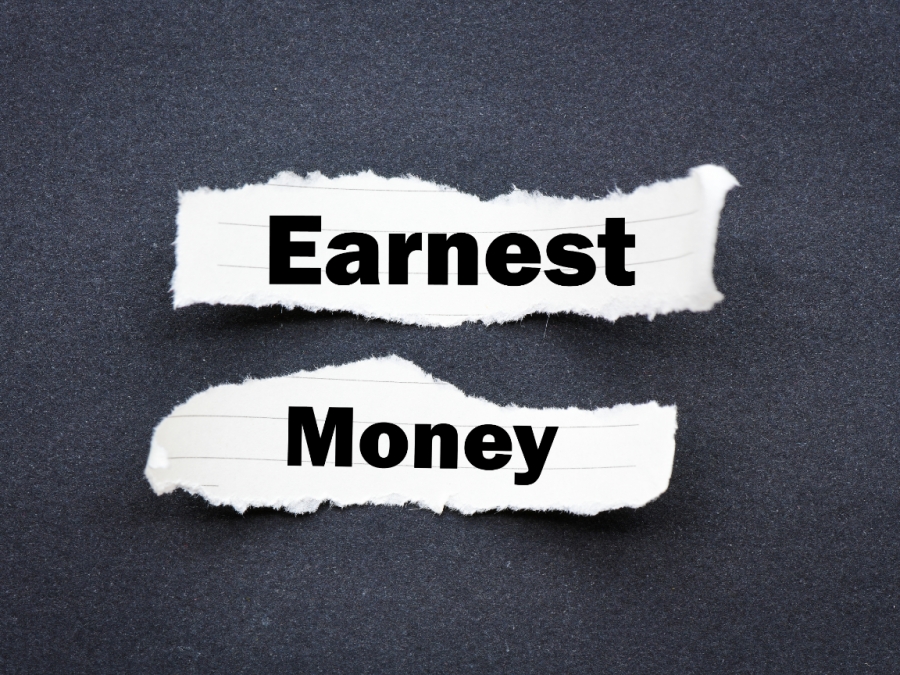If you’ve found your dream home and are finally ready to make an offer for it, you might also want to prove to the seller that you’re serious about your offer. One way to prove that is by giving the seller earnest money.
Earnest money is different from a down payment, and it often costs a lot less. Simply put, it’s a good-faith gesture to show the seller that you’re serious about buying their home.
What Is Earnest Money?
Earnest money is an amount of money that you put down to prove to the seller that you’re serious about purchasing the property. Earnest money is also known as a good faith deposit.
During the home buying process, when the buyer and seller enter into a contract, the seller takes the home off the market while the transaction moves through the process up to closing. But sometimes, the deal falls through, and when this happens, the seller has to relist the home and start over, which results in a financial hit.
Earnest money exists to protect the seller if the buyer backs out of the purchase. Typically, the earnest money is kept in escrow until the deal is complete. If everything goes well, the earnest money is put into the buyer’s down payment or closing costs.
However, if the deal falls through because of a failed home inspection or through the fault of the seller, the earnest money then protects the buyer. The buyer will get their earnest money back if the seller is at fault.
Depositing earnest money decreases the chances of a buyer placing offers for multiple homes and walking away after the home is taken off the market.
Why Should You Pay Earnest Money?
Although earnest money isn’t always a requirement, it could give you an advantage when shopping in a competitive market, which is more often known as a seller’s market.
Sellers tend to favor buyers with good faith deposits because it decreases the likelihood of the deal falling through. Even if it does, the earnest money could go to them if the deal falls through because of the buyer’s fault.
Earnest money can act as added insurance for both the buyer and the seller throughout the transaction.
Paying earnest money could also lower the amount that you’d need at closing because when the deal goes through, the money then goes directly to your down payment or closing costs.
If you think of it this way, you’re basically just putting up some of your money earlier than needed. If you’re serious about buying the home, paying earnest money shouldn’t deter you since you won’t lose anything unless the deal falls through because of you.
So, How Much Is Enough?
Typically, earnest money ranges from 1-5%, but 1% to 2% of the sale price is more common. Sometimes, the good faith deposit can also be a fixed amount, such as $5,000. How much earnest money you’ll need depends on the seller and the state of the market the property is in.
A property listing in a slow buyer’s market often does not need as much earnest money as a property in a hot seller’s market, where multiple buyers compete for the same property. If you plan to buy a house in a neighborhood where cash offers and bidding wars are an everyday occurrence, giving a higher good faith deposit is a good idea.
In a hot market, not only is the home price inflated, so is the earnest money requirement. In some cases, the buyer may be able to purchase the home, but will not have enough cash to meet the high earnest money requirement at the start.
If you won’t be paying all cash or a significant amount of cash, a large earnest money deposit can prove to sellers that you’re serious about purchasing the home.
There are several ways you can lose your earnest money, but the bottom line is, if you’ve done enough preparation, you’ll get to keep your good faith deposit. Earnest money protects both the seller and the buyer during the purchase, and if you’re serious about buying a home, be prepared to pay earnest money at the start of the deal.









